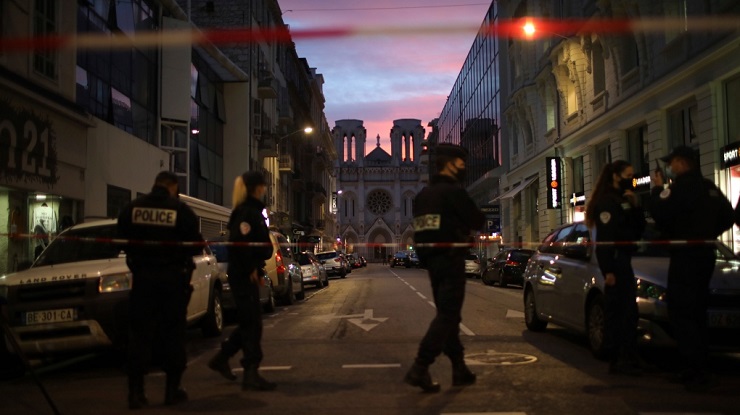Events in France, where a series of fatal armed attacks on civilians took place, have caused quite a stir in the Middle East. In local media and social networks, controversy is raging about the assessments and consequences of these incidents, their impact on the balance of power in the region, and relations between the West and Islam.
At the official state level, in major theological centers of the region, the incidents were condemned, with the notion that such crimes, committed by some individuals, can occur anywhere and at any time. The Lebanese newspaper Al-Akhbar cites the views of foreign intelligence agencies that the attacks in France are the work of so called “lone wolves.” It has not yet been revealed that any organized forces were behind them. There is also no evidence that any prominent Salafi groups were involved in these incidents. The actual doers, apparently, did not come from the Arab-African background, traditionally living in this country for decade-long period.
According to the view of the pan-Arab newspaper Al Arab, published in London, Muslims in general and especially in the countries of the Arab region continue to keep a distance from the Western cultural values. These countries have not yet passed the era of enlightenment like Western Europe did, an era that laid the foundation for democratic and secular values and subsequently modern civilization. The West is unable to understand that there is a great distance of two centuries between “them and us” in understanding the connection between a human and religion. The West sees here a personal attitude associated with individual freedom, while in the Islamic world and in the Middle East, faith is perceived collectively, which is traditionally inherited and does not allow doubting.
Local commentators highlight the political motives behind the terrorist incidents. According to the Qatari Al-Jazeera channel, President Macron feels that the electorate is leaving him and therefore he has done and is doing everything in his power to raise the number of his sympathizers, pushing hard the theme of protecting the “French values” from the challenges of the Islamists. Arab authors agree that every country has the right to protect the safety of its citizens from terrorist crimes. Meanwhile, the rhetoric of sweeping accusations of this on all Muslims can only intensify extremism on both sides, play directly into independent regimes ruling in a number of Arab-Muslim countries. In such countries, many people suffer from poverty, social hardships, and religion and ethnicity-based conflicts. Therefore, hundreds of thousands of Muslims are looking for a better life outside their countries, becoming refugees, trying to find salvation and security, a peaceful sky in emigration, primarily in the countries of the “Christian Europe”.
At the same time, the harshest response to the events in Paris and Nice came from the leader of Ankara. According to local authors, his assaults on the French president are motivated rather not by concerns about religion, but by geopolitical interests and calculations in the Eastern Mediterranean, in Libya, and in general in North Africa and further east, right up to the conflict in Karabakh.
The responses of a number of political scientists convey a message that underlying processes are hidden behind religion. They believe that it is necessary to pay attention to the real facts of their social life, address the pressing issues, move away from loud statements or emotional rhetoric that only distracts peoples of the Earth from their aspirations for freedom and democracy.
The West also bears its own responsibility. Wasn’t it the West that for a long time preferred to sell all kinds of weapons to dictatorial regimes in the Islamic area, who oppressed their peoples? Wasn’t it the West that armed the Taliban in order to push them against Russia, only to later have them turn their weapons against their sponsors instead?
On the other hand, a series of raids played directly into extreme radical Islamists, heralds of ideas of intolerance and fanaticism. The North African branch of Al-Qaeda (banned in Russia – Ed.) in its declaration explicitly called on Muslims to mercilessly deal with those “who offend the Prophet”.
Saudi publicist Khalid T. Al-Turki believes that an educated, thinking Muslim will not be led astray by a campaign for defamation of religion and its Prophet Muhammad, or by virulent drawings or cartoons. The darkest, backward faithful do the most damage to Islam. There have been and still are contradictions between different religions. As the publicist concludes, if one of the Muslims does not like living under the laws and Constitution of his host country, France, then he just needs to leave his place of residence.
Yuri Zinin, a senior researcher at the Center for Middle Eastern Studies, Institute of International Studies of the Moscow State Institute for International Relations, exclusively for the online magazine “New Eastern Outlook”.

